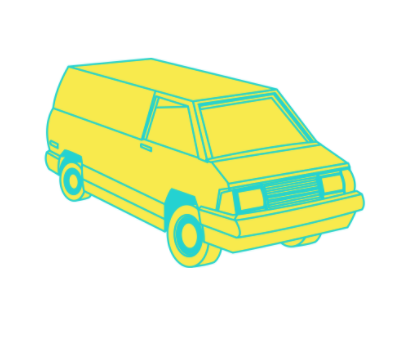How to Raise Up Poor Neighborhoods through Health
A couple of months ago, before COVID I was going to a meeting with my boss at our sign shop on the poorer side of Louisville. Before our meeting, we wanted to get a quick, healthy lunch.
We drove down the main drag looking for a restaurant and passed a fried chicken restaurant, a BBQ restaurant, another fried chicken and fish restaurant, and couldn’t find anything that would provide a healthier option.
Finally we decided to go to a Chinese restaurant. It was in the parking lot of a deserted strip mall, next to a liquor store. While we were there, there were mainly people of color who came in to order.
It was apparent to me in this moment that there are no healthy food options for these poorer neighborhoods, which generally have more people of color. Which means:
The people who live in these neighborhoods are malnourished due to the types of food options in close proximity to them.
They are forced to buy meals at fast food restaurants due to the lack of grocery stores in their area, which may seem cheap at the time, but is not cheaper or healthier than cooking at home.
Liquor stores are prevalent and so are addictions to alcohol.
These parts of town are high in rental properties and in so, they are rundown because people don’t own them and don’t care about them. If people own, they take more care of their property.
Eating more fast food with highly processed foods with high fat and salt content can cause diseases like heart disease, high blood pressure, obesity, and diabetes, which are prevalent in black populations.
Both renting housing and eating at fast food restaurants – though cheap in the short term – actually cost more in the long term. But many poor people can’t spend more money up front to buy groceries or put a down payment on a car or house. They live paycheck to paycheck and end up spending more money and stay poorer.
These systems are made to keep poor people poor. Or at least that’s how it’s been going. No one has been changing them because people in power own their houses and are okay staying oblivious.
If people of color had more options to shop at grocery stores and farmers markets and had more diversified restaurants with healthier meal choices, they would be healthier and in so live longer, happier and more well-rounded lives.
Access to healthier food options = healthier bodies and minds = smarter people = more opportunities
As the Black Lives Matter protests continue every day, I’ve been thinking a lot about our society. I’m trying my best to be anti-racist and teach others how to be as well. I’m hoping that this movement will turn into a revolution to change systemic racism and end police brutality targeting black people and I believe it will make changes in our society.
After this revolution, the next one should be a food revolution giving more communities access to fresh, healthy food options and teach people how to eat and cook for their minds and bodies. Food is medicine. Food is powerful.
